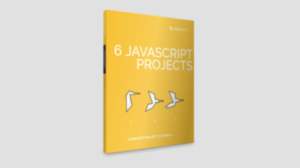Every freelancer needs to be able to rely on the quality of their work. In a workplace, you’ll usually have a team of like-minded peers who you can bounce ideas off and run your work past, but when you’re out on your own, you may not have the luxury of an objective party to review your work.
There are, however, basic steps you can take to assure the quality of your output, and increase the consistency of your work. These are the basic approaches I use.
1. Apply Industry Standards
The biggest challenge I’ve face in applying industry standards to my work is to identify what those industry standards are. A bit of research goes a long way in this regard, but I like to go beyond the web to talk to industry peers and see what processes and techniques they use to get work done, and ensure it’s on-target.
Once I understand the industry standards for a work type, then I can decide how — and how thoroughly — I’ll apply those standards to the projects I undertake for clients. This can take a bit of trial and error, but as long as you’re aware of the industry benchmarks, and are prepared to meet them (or those you feel are important) on every project you undertake, you’ll be in a good position to deliver consistently.
2. Use Appropriate Checking Tools
Designers and coders have debuggers, browser emulators, and so on; writers have spellcheckers, reading level assessors and style guides; project managers have dependency-checking tools and input trackers. Applying the tools of your discipline to every piece of work you produce can seem elementary — perhaps that’s why we often overlook this crucial step in the QA process.
The tools of your trade will help you to achieve a baseline of quality. Sure, you may want to far exceed that baseline — that’s fine. But there’s no point aiming high if you can’t get those basics spot-on.
3. Formalize a Process
Developing processes for the major tasks or projects you commonly undertake is an essential first step in the winning the QA battle. Jotting down a list of steps, sub-processes, and techniques you use to get something done, makes life easier.
It’ll cement that work process in your mind, and give you a guide that you can refer to whenever this work type comes up in future. Having the process all laid out can make refreshing yourself on a project type easy, and it can significantly reduce mis-steps and errors that add time and tension to the average project.
4. Create a Checklist
If you have a process, you can derive a nice, simple checklist from it. Again, this tool reduces the hassle involved in fumbling your way through a project, can help you to stay on track, and allows for a neat, swift check at the end (or during each stage) of a project to make sure you haven’t forgotten anything you need.
5. Check with a Friend or Colleague
Okay, so you might not work in an office with others. But if you have a good network of freelance contacts or even friends who operate in the same industry as you, you may still have opportunities to get objective feedback before you release your work to the client.
Objective parties who understand your industry or discipline can be invaluable in helping you pick up the small issues, and instrumental in improving your work by the extra 10% that sets you apart from your competitors. If you can arrange an in-kind exchange with your peer reviewer, so much the better; otherwise, look for some other way to reward and thank them for their help. After all, they’re helping you make great work!
What steps do you take to ensure the quality of the products and services you provide?
Image by stock.xchng user Safi.
Georgina has more than fifteen years' experience writing and editing for web, print and voice. With a background in marketing and a passion for words, the time Georgina spent with companies like Sausage Software and sitepoint.com cemented her lasting interest in the media, persuasion, and communications culture.



